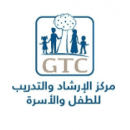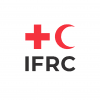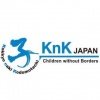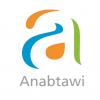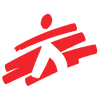External Project Evaluation
Terms of Reference External Project Evaluation
The Guidance and Training Center for the Child and Family (GTC) was established in 1994 in Bethlehem to provide mental health services, special education services, and training for Palestinian children and families.
GTC takes a holistic approach to meeting the needs of children and families, promoting healthy social, cognitive, emotional, and educational development. The center works through five main programs: Therapeutic Services, Preventive Services, Education, Research, and Advocacy. These programs are interconnected to achieve the following goals:
● Provide preventive and therapeutic mental health services to children and families in Palestinian society.
● Advance the development of knowledge, skills, and experience of professionals in the field.
● Conduct research to meet the needs of target groups.
● Participate in the development of mental health in Palestinian society and the broader international community in support of the Sustainable Development Goals (SDG).
GTC has been implementing the project "Provision of mental health services to children, women, and youth in Palestine, continuation" since January 2020. The project is funded by multiple partners, including Bread for the World (BftW), Misereor, Medical Aid for Palestinians (MAP), Association of the Holy Childhood (Kindermissionswerk) and Waldesian church. GTC now seeks an external evaluation of this project to assess progress and provide recommendations for future improvements.
This evaluation is an end-of-cycle assessment designed to provide an external, independent review of the project's implementation to date. The evaluation aims to examine the impact, effectiveness, efficiency, relevance, and sustainability of the project and provide feedback that will:
● Support improved implementation of activities within the remaining interventions and timeframe.
● Inform the planning and design of future project cycles.
● Assess the impact of external factors, including the events of October 7, 2023, on project relevance and execution.
● Ensure compliance with donor requirements and regulatory obligations.
Results will be shared with project partners, including GTC, Bread for the World (BftW), Misereor, MAP, and Kindermissionswerk.
The evaluation should address the following key questions while considering gender, environmental impact, and inclusion of people with disabilities.
● To what extent do the project objectives align with the needs of the target group?
● In light of the October 7, 2023 events, have the needs and priorities of beneficiaries changed? How has GTC adapted?
● Do the project’s designed strategies correspond to its objectives?
● Is the program contributing to an improved quality of life for beneficiaries?
● Are GTC staff competencies and capacity suitable and effective for intervention goals?
● Are the tools used (e.g., focus groups, questionnaires, tests, case studies) effective in achieving intervention objectives?
● Are the systems used by GTC optimizing project outcomes efficiently?
● Are resources and expertise utilized effectively to maximize impact?
● To what extent has the project achieved its intended impact?
● How has the October 7, 2023 crisis influenced the project context, and should new components be considered for future sustainability and impact?
● Do the strategies used in activities contribute to the overall development goal of the project?
● Playing a key role in improving the quality of psychological training at universities in the Palestinian territories.
● What is the likelihood of continued long-term benefits for beneficiaries beyond the project period?
● Does the project design support a sustainable impact? Economic, Ecologic, Social?
The evaluator should apply OECD-DAC standards and use a participatory approach that includes diverse stakeholder perspectives. The methodology should include:
● Document review (project proposal, periodic reports, etc.).
● Data collection through focus group discussions and individual interviews with stakeholders (beneficiaries, parents, interns, caregivers, project staff, and funding partners).
● Meetings with key personnel (Clinical Director, Psychologists, Project Management, and Supervisors).
The evaluator should outline their methodology in the technical proposal.
The evaluation will be conducted over 2 months, starting April 16, 2025.
● Kick-off meeting – April 16, 2025
● Inception report – April 30, 2025
● Draft final report – May 28, 2025
● Final report (30 pages + annexes) – June 4, 2025
● Workshop to present findings – June 11, 2025
Reports should be in English, with an executive summary in both English and Arabic.
The evaluation team should have:
● Proven experience conducting evaluations.
● At least one team member with an academic degree in a mental health-related field.
● Expertise in mental health program evaluation.
● Knowledge of civil society cooperation and development.
● Understanding of Palestine’s cultural and political context.
● Fluency in Arabic and English.
Applicants should submit:
● CVs of evaluation team members.
● Examples of previous evaluations conducted.
● Technical proposal, including:
○ Outline of the planned evaluation procedure.
○ Justification of proposed methods.
○ Proposed timeframe.
● Financial proposal, including:
○ Detailed consultant fee breakdown (transport, accommodation, taxes).
○ Official VAT invoice and a valid Certificate of Deduction at Source.
Submission Deadline: April 12, 2025 (sealed envelope submission to GTC, Manager Street, Bethlehem).




